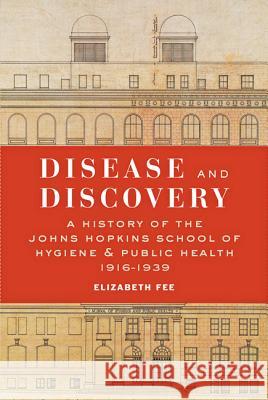Disease and Discovery: A History of the Johns Hopkins School of Hygiene and Public Health, 1916-1939 » książka
Disease and Discovery: A History of the Johns Hopkins School of Hygiene and Public Health, 1916-1939
ISBN-13: 9781421421100 / Angielski / Twarda / 2016 / 304 str.
Disease and Discovery: A History of the Johns Hopkins School of Hygiene and Public Health, 1916-1939
ISBN-13: 9781421421100 / Angielski / Twarda / 2016 / 304 str.
(netto: 140,53 VAT: 5%)
Najniższa cena z 30 dni: 147,25
ok. 30 dni roboczych
Bez gwarancji dostawy przed świętami
Darmowa dostawa!
At the end of the nineteenth century, public health was the province of part-time political appointees and volunteer groups of every variety. Public health officers were usually physicians, but they could also be sanitary engineers, lawyers, or chemists--there was little agreement about the skills and knowledge necessary for practice. In Disease and Discovery, Elizabeth Fee examines the conflicting ideas about public health's proper subject and scope and its search for a coherent professional unity and identity. She draws on the debates and decisions surrounding the establishment of what was initially known as the Johns Hopkins School of Hygiene and Public Health, the first independent institution for public health research and education, to crystallize the fundamental questions of the field. Many of the issues of public health education in the early twentieth century are still debated today. What is the proper relationship of public health to medicine? What is the relative importance of biomedical, environmental, and sociopolitical approaches to public health? Should schools of public health emphasize research skills over practical training? Should they provide advanced training and credentials for the few or simpler educational courses for the many? Fee explores the many dimensions of these issues in the context of the founding of the Johns Hopkins school. She details the efforts to define the school's structure and purpose, select faculty and students, and organize the curriculum, and she follows the school's growth and adaptation to the changing social environment through the beginning of World War II. As Fee demonstrates, not simply in its formation but throughout its history the School of Hygiene served as a crucible for the forces shaping the public health profession as a whole.











